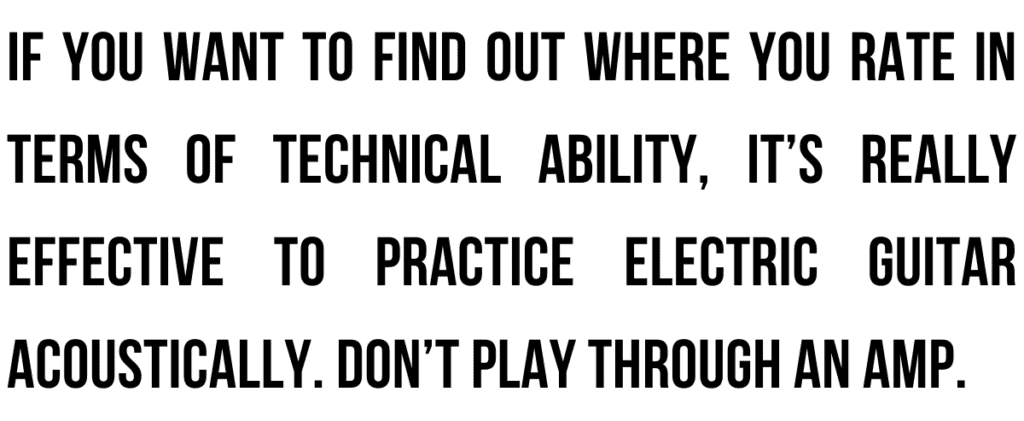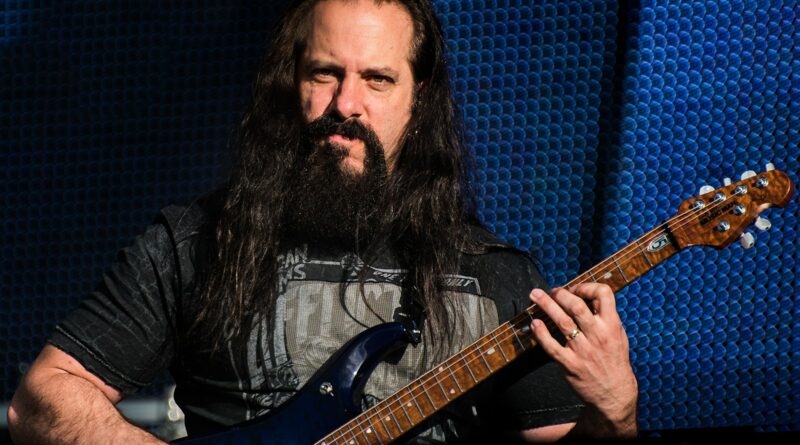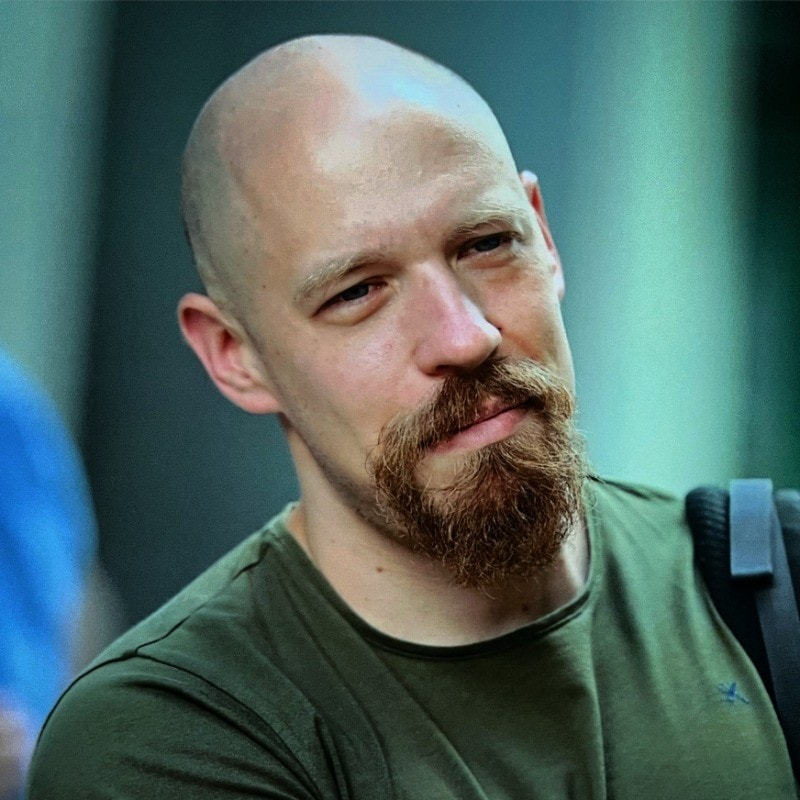Recently, Dream Theater guitarist John Petrucci caught up with the Guitar Player magazine to discuss what he believes are the top ten tips for all the guitar players out there. The first one that he mentioned kind of stood out and will probably cause some mixed reactions among axe-wielders out there. According to Petrucci, all you need to do is take your electric guitar, not plug it into an amp, and then go into an empty room full of tiles. He explained:
“If you want to find out where you rate in terms of technical ability, it’s really effective to practice electric guitar acoustically. Don’t play through an amp. Instead, go into a tiled room, like a bathroom, where you have a little bit of natural reverb.”

According to Petrucci, this particular approach could help you “dissect” your playing and hear what’s wrong. And, most importantly, you’ll lack the sustain of amplification and distortion. He continued:
“Then you can really dissect your playing and figure out what’s going on with your technique, because you don’t have the sustain of distortion, or any effects or delays hiding anything. All you have is what’s actually physically happening when your hands are touching the instrument. That can be very revealing.”
One of the most common pieces of advice that you’ll get as a guitar player is that you need to use a metronome. And no matter how boring and annoying and tedious it might seem, that’s exactly what John recommended in this guide. He explained:
“I’ve said this a million times, but I’ll say it again: Use a metronome. It’s very old-school, but it’s just such a great way to develop your sense of rhythm and solidify timing.”
“And it’s also a great way to develop technique because you can play along to something at a slower metronome speed and gradually increase it until you master a certain phrase or lick, instead of just sitting there frustrated, trying to play something over and over and not getting anywhere.”
Among plenty of other things he said, there was another piece of advice that kind of stood out. No matter how weird you might feel about listening back to what you played, it’s always a good idea to record what you practiced. Petrucci explained:
“Record your ideas. It doesn’t have to be done in any sort of fancy way, but as you’re playing, if something comes to you creatively, don’t ignore it; record it.”
“When I was younger I would do it with cassettes, but it’s so much easier now because everybody has a phone. So just get it down. You might listen back to it later and it could turn into a whole song. It happens to me all the time.”
“‘Fall Into the Light’ on ‘Distance Over Time’ was like that. There were riffs that I recorded on my phone and saved them for later, and it turned into a fully-fledged song.”
Another thing that Petrucci reflected on is the issue of chords. As he explained, depending on what they’re aiming for, some guitar players tend to focus on either chords or melody. But as he explains, these two things work together. John said:
“Depending on their style, certain guitar players are very, very much into chords, while other players sort of ignore them. It’s so much fun to play single notes and solo and play riffs. But studying complex chord forms is one of the things that really helped me develop as a player, and helped me develop my sense of melody and improvisation.”
“I’ve said this before, but the book ‘Chord Chemistry’ by Ted Greene(opens in new tab) is one of the greatest chord books ever. You pick a page from that book and you’ll be there for a month.”
“Songs like ‘Pull Me Under’ and ‘Take the Time’ and ‘Another Day’ [all from Images and Words] were largely influenced by that book. Studying chords is a great way to explore creativity.”
As far as his own playing and practice go, Petrucci reflected on it during an interview published earlier this year. When asked how much practice he put in when he was younger, Petrucci said:
“I practiced a minimum of six hours a day. In fact — and I’ve said this before — this was a pact that John Myung and I had that we had to practice six hours a day in school.”
“So let’s say it was a Friday night, and you heard about a party that night, if you went to it and the other guy wasn’t there, you would assume he didn’t get his practicing. But if you saw him there, there was just like the unspoken ‘I put my hours in.’ So it was like really like that. We had to practice six hours a day minimum.“
Asked to compare the time invested back then to what he does today, he replied:
“I could sit there for hours and do it. And I do kind of similar thing of what I used to do when I was young where it wouldn’t just be six hours straight. I practice for an hour and a half, and then take a break, and then practice an hour and a half now, it’d be three hours, halfway there.“
Of course, with a guitar master like Petrucci, it’s only a matter of time until someone’s going to ask him how much he practices today. Asked about it, he explained:
“So right now, I’m practicing the music that I’m playing live. Because I think of it this way… I mean, guitar is fun as you know. And you can go online or on YouTube, or Instagram or something and see somebody do something crazy. And you’re like, ‘What are they doing there,’ and you want to try to do that.“
“And you can sit there while you’re on tour, practicing that backstage. But then you flash forward to yourself on stage, playing the song and everybody there who bought tickets expecting you to do it.“
“And you’re like, well, really, the only thing I’m responsible for right now is to be able to play my own music. [laughs] So a lot of times, I will drill the difficult sections of the show. And still not play it right and then walk offstage and be like, ‘Alright I have another day to practice’ and try it again.”


